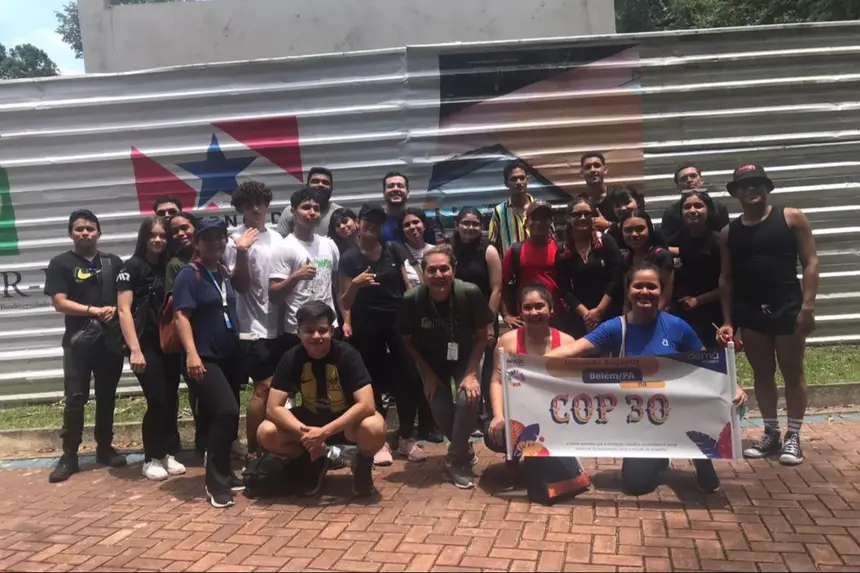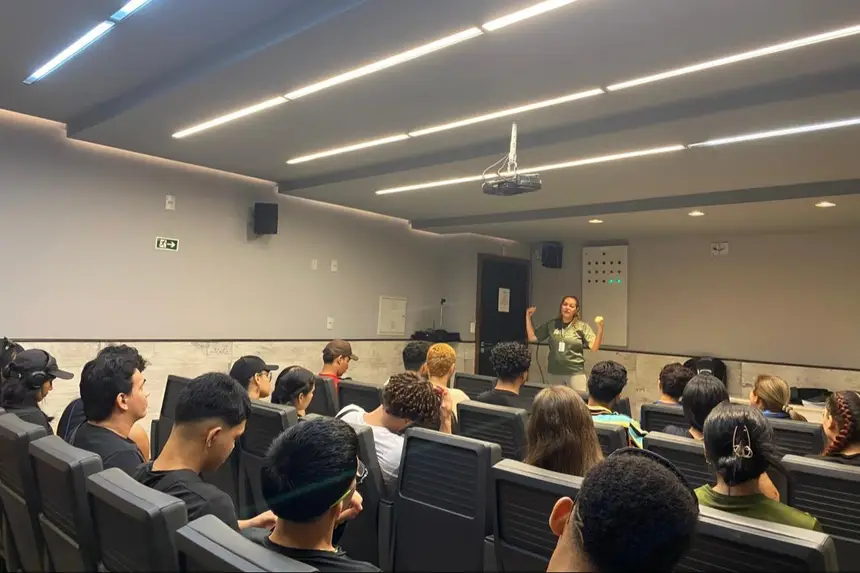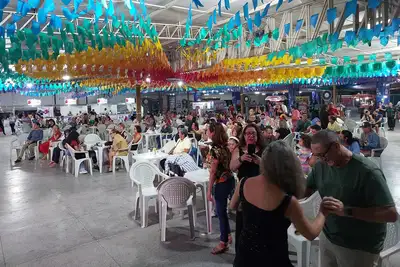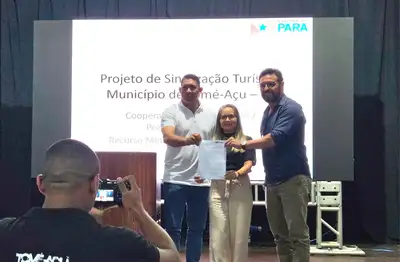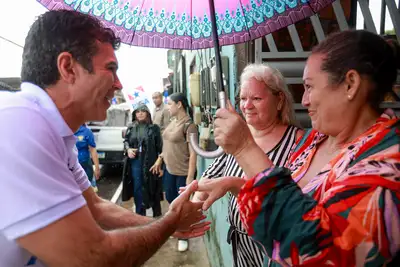Young apprentices experience environmental education activities at Utinga State Park
The visit was important for the young people to learn more about the importance of biodiversity preservation
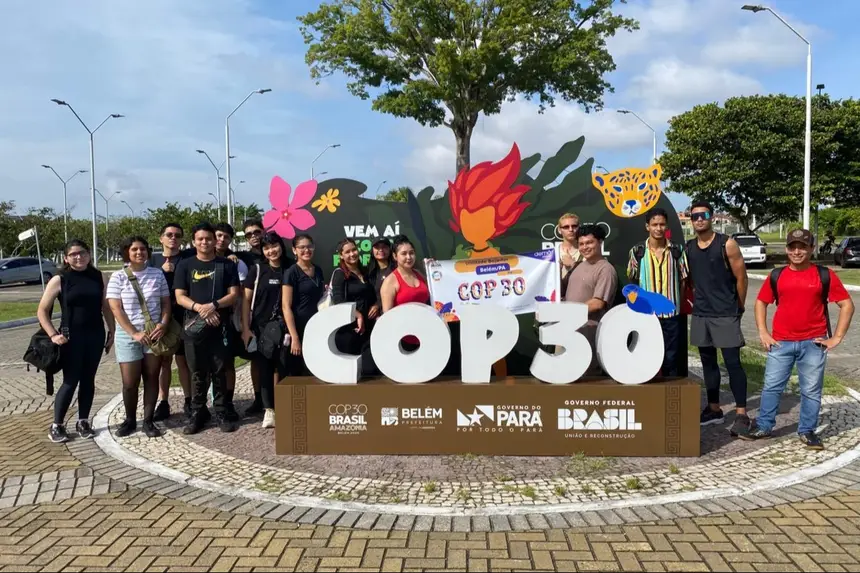
Young people served by the Learning Program of the National Network of Learning, Social Promotion, and Integration (Renapsi) visited, this Monday (20), the Utinga Camillo Vianna State Park in Belém. The action took place in partnership with the Institute for Forest Development and Biodiversity of Pará (Ideflor-Bio), through the Management of the Administrative Region of Belém (GRB).
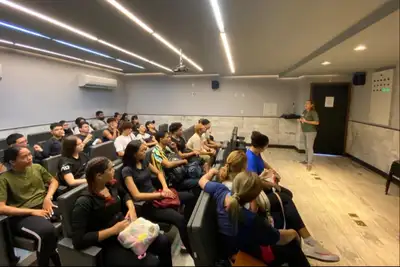
According to the environmental analyst of Ideflor-Bio, Sineide Vasconcelos, the visit was important for the young people to learn more about the importance of biodiversity preservation. “Young people are protagonists and disseminators of knowledge about environmental causes, and this visit allowed them to understand more about the importance of preserving nature and biodiversity,” she emphasized.
During the action, various activities regarding the environment were promoted, such as a lecture on the 29 state conservation units, which are managed by Ideflor-Bio; observation of the fauna and flora of Utinga, and finally, a visit to the Verônica Tembé Memorial.
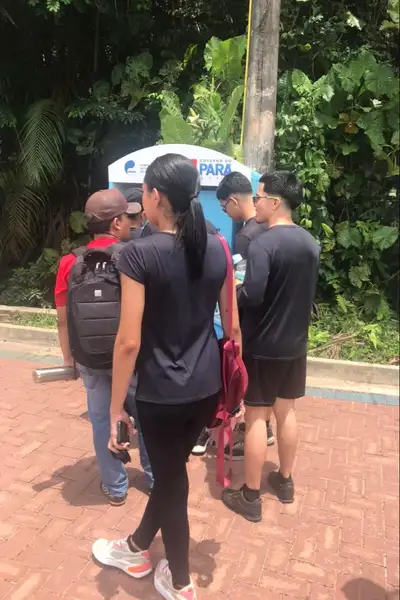
Environmental Awareness - The Educational Coordinator of Renapsi, Lucileia Gomes, emphasized that the program allowed the development of environmental awareness among the young people served by the program. “These actions aim to develop environmental awareness and critical and sustainable thinking, stimulating a sense of belonging and providing a more active participation in the context of this theme,” she highlighted.
The manager of the Administrative Region of Belém at Ideflor-Bio, Júlio Meyer, said that Ideflor-Bio believes that initiatives like this help inspire new generations to understand the role of conservation units in urban quality of life and in the protection of Amazonian biodiversity.
“Welcoming the young people from Renapsi at Utinga State Park is a valuable opportunity to strengthen the bond between youth and the environment. Direct contact with nature and the history of the Park awakens the sense of belonging and socio-environmental responsibility, essential for the formation of conscious and engaged citizens,” he concluded.
Text in collaboration with Sinval Farias (Ascom/Ideflor-Bio)



